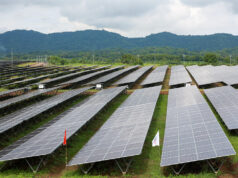Fiscal gap steadies in 2017, but falls short of program
By Melissa Luz T. Lopez
Senior Reporter
THE PHILIPPINES incurred a slightly narrower budget deficit in 2017 that fell below program, with a double-digit pickup in spending matched by above-target revenue collections, according to latest Treasury data.
The country logged a P350.6-billion fiscal gap last year, slightly smaller than 2016’s P353.4-billion deficit and 27% short of a P482.1-billion program for 2017, the Bureau of the Treasury said in a statement. Last year’s full-year gap was equivalent to 2.2% of gross domestic product (GDP), compared to 2.4% of GDP in 2016 and a three-percent program.
Revenues reached P2.473 trillion for the full year, up by 13% from the P2.196 trillion raised in 2016 and two percent past a P2.427-trillion target, marking the first time in recent years that collections beat the official target.
The Treasury said this is the highest annual collection growth recorded since 2013.
Broken down, the Bureau of Internal Revenue (BIR) collected P1.772 trillion in taxes, up 13% year-on-year but a tad short of the P1.783-trillion target. The Bureau of Customs (BoC) collected P458.2 billion last year, 16% more than the previous year’s tally and nearly matching a P459.6-billion goal.
Non-tax revenues such as fees and penalties collected by other government agencies totaled P222.5 billion, up three percent from a year ago and overshooting a P168.5-billion target.
December alone saw revenues grow 35% to P223.1 billion from the year-ago P165.3 billion. This came as non-tax revenues from the Treasury more than doubled to P26.1 billion and as collections from the BIR, BoC and other tax-collecting offices jumped 29% to P197 billion.
Government spending hit P2.824 trillion in 2017, an 11% rise from the P2.549 trillion disbursed a year ago. However, this missed the P2.909-trillion spending target by three percent, according to Treasury data.
Spending grew 16% to P330.2 billion in December alone from P283.6 billion a year ago.
Despite settling below the deficit ceiling set for the full year, Finance Secretary Carlos G. Dominguez III said the latest figures represent a “big improvement” in public spending.
“[I]t’s not like a sports car when you step on the gasoline it goes right away. This one takes a little time for the government, [but] we are moving in the right direction I think,” Mr. Dominguez told reporters on the sidelines of the launch of the Philippine Tax Academy (PTA).
“Last year was the first full year that we were doing it… This year we’ll even do better.”
The Department of Finance (DoF) on Tuesday unveiled the PTA, which will provide continuing training and education to tax-collecting officials.
Economists see improved fiscal performance this year, with spending expected to accelerate as the government rolls out more infrastructure projects and aided by additional revenues from tax reform.
“[W]e saw a narrowing of government underspending for 2017 versus 2016, suggesting an improvement in the utilization of programmed budget for spending purposes,” said Angelo B. Taningco, economist at Security Bank Corp.
“We expect government spending to accelerate on the back of its infrastructure push, and would outpace government revenues and support economic growth,” Mr. Taningco added, noting that he expects a fiscal deficit equivalent to 2.7% of GDP this year.
The administration of President Rodrigo R. Duterte plans to spend some P1.1 trillion this year on priority infrastructure, about a fourth of the full-year national budget and equivalent to 6.3% of GDP.
“More infrastructure financing via official development assistance could speed up the deployment of more infrastructure projects and lower the financing costs of the government,” added Michael L. Ricafort, economist at the Rizal Commercial Banking Corp.
He added that resolving right-of-way issues and improved clarity on contracts may “help accelerate” project deployment, which in turn could spur growth.
Tax reform will also help sustain an increase of government spending, with the first package that took effect Jan. 1 expected to generate up to P90 billion in additional funding for this year alone
DoF’s Mr. Dominguez said a team from the Department of Public Works and Highways has been sorting out right-of-way issues for all priority infrastructure projects.
The government plans to raise P2.841 trillion revenues and spend P3.364 trillion this year, resulting in a P523.6-billion budget gap, according to the Department of Budget and Management.
This is expected to spur GDP growth to 7-8% from last year’s 6.7% and 2010-2016’s 6.3%.




